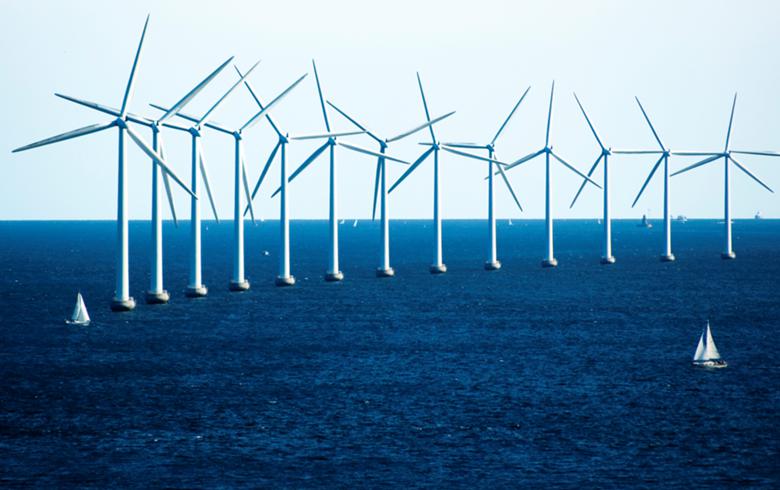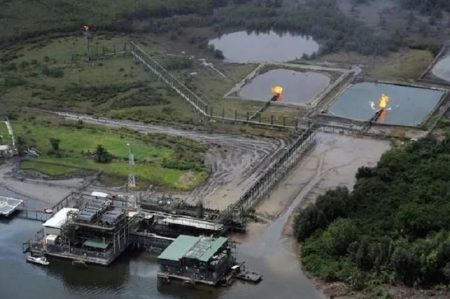
Oscarline Onwuemenyi
18 August 2016, Sweetcrude, Abuja – New aggregated power poll results released by NOIPolls for a six-month period, between January to June 2016 revealed a downward trend in the power supply to Nigerian households from the month of January down to the month of June 2016.
This is following a relatively high record in January at 60 percent improvement, after which there was a consistent decline in the power supply to households through June 2016, with the highest dip recorded in February at 21-Points from January 2016.
According to the survey results released yesterday, these findings are reflections of the challenges faced by the power sector, one of which is the issue of vandalism of oil and gas installations. For instance, the vandalization which occurred in the Escravos area of Delta State resulted in a drop in power generation from about 3,600 megawatts (MW) to 2,500 MW, translating to a loss of 900MW in May 2016.
Furthermore, the poll revealed that average daily cumulative hours of power supply experienced in Nigerian households nationwide in the month of January 2016 stood at 10.5 hours; representing the highest daily cumulative hours of power supply during the six months in view.
In addition, the month of May 2016 recorded the lowest daily cumulative power supply at 5.6 hours within the same period.
Although several efforts are being made by the Government to improve the power supply in the country such as the recent commissioning of four gas power stations in Q2 2016; it is, however, clear that these efforts are yet to translate into actual power improvement to impact the lives of Nigerians. Besides, these reform efforts can take a long gestation period from conceptualisation to implementation.
The report noted that the Nigerian power sector improved tremendously in the third quarter (Q3) of 2015, with Nigerians enjoying enormous electricity supply as a result of increased generation and a historical peak capacity of 4,817MW achieved within this period.
“This improvement continued till the first quarter (Q1) of 2016 but also spiraled downwards within the same quarter as a historic system collapse was recorded within this period and the resultant effect was a Zero Mega Watts (0 MW) generation that led to a nationwide drop in the power supply.
“This downward trend and collapse have been blamed on the degree of destruction in infrastructure and gas pipelines vandalism that has taken place through the years, as well as poor maintenance and upgrade of power installations across the country,” the report noted.
In a bid to address these irregularities that have characterized the Nigerian power sector, the federal government in the second quarter (Q2) of 2016, commissioned four gas power projects to boost electricity supply in Nigeria.
Also, in an effort to improve the state of electricity supply in Nigeria, the present administration has stated that all on-going power projects must be completed within the next 3 years.
With the aim of monitoring the progress made so far in the power sector reforms in Nigeria, NOIPolls introduced the Power Polls in 2013 to explore the perception of Nigerians towards the power sector reforms.
The polls were conducted monthly to explore the amount of power supply received daily as well as the state of power supply to households. The result presented is a 6-Month (January2016-June 2016) tracking of power supply to households from the consumers’ end in 2016.
Analysis of findings from NOI Polls monthly tracking of the power supply over a period of six months specifically from January to June 2016 revealed that 60 percent of Nigerians nationwide stated that power supply has improved nationwide in the month of January.
This figure represents the best rating for power from January 2016 to June 2016. However, the results depict a downward trend from the month of January down to the month June 2016 (which recorded the lowest figure at 15 percent). The highest dip in power supply was recorded in the month of February from January 2016 at 21 points.
Furthermore, analysis of results revealed that the average improvement in supply nationwide, during Q1, 2016 stood at 44 percent. While average during Q2, 2016 stood at 17 percent. This represents a -27 points dip from Q1, 2016.
Also, analysis of poll results showed the average cumulative hours of power supply experienced by Nigerian households nationwide in the month of January 2016 stood at 10.5 hours daily. This represents the highest daily cumulative hours of power supply during this six months period.
The month of May 2016 showed that Nigerians experienced 5.6 hours of the daily cumulative power supply and this represents the lowest during this six months period.
The results revealed that the nationwide average daily cumulative power supply for Q1, 2016 stood approximately at 9 hours, while in Q2, 2106 it stood at approximately 6 hours; representing about 3 hours decline from the previous quarter.
The overall monthly tracking on the state of power supply to Nigerian households over this six months period clearly depicts that there is a serious decline in the power supply, as evidently revealed. The improvement in power supply continually declined from 60 percent in January 2016 to 15 percent in the month of June 2016. Also, the average quarterly daily cumulative hours of power supply declined from approximately 9 hours in Q1, 2016 to 6 in Q2, 2016.
The opinion poll was conducted over a period of six months (January to June 2016). It involved telephone interviews of a random nationwide sample. 6,000 randomly selected phone-owning Nigerians aged 18 years and above, representing the six geopolitical zones in the country, were interviewed. With a sample of this size, we can say with 95% confidence that the results obtained are statistically precise – within a range of plus or minus 3%.



